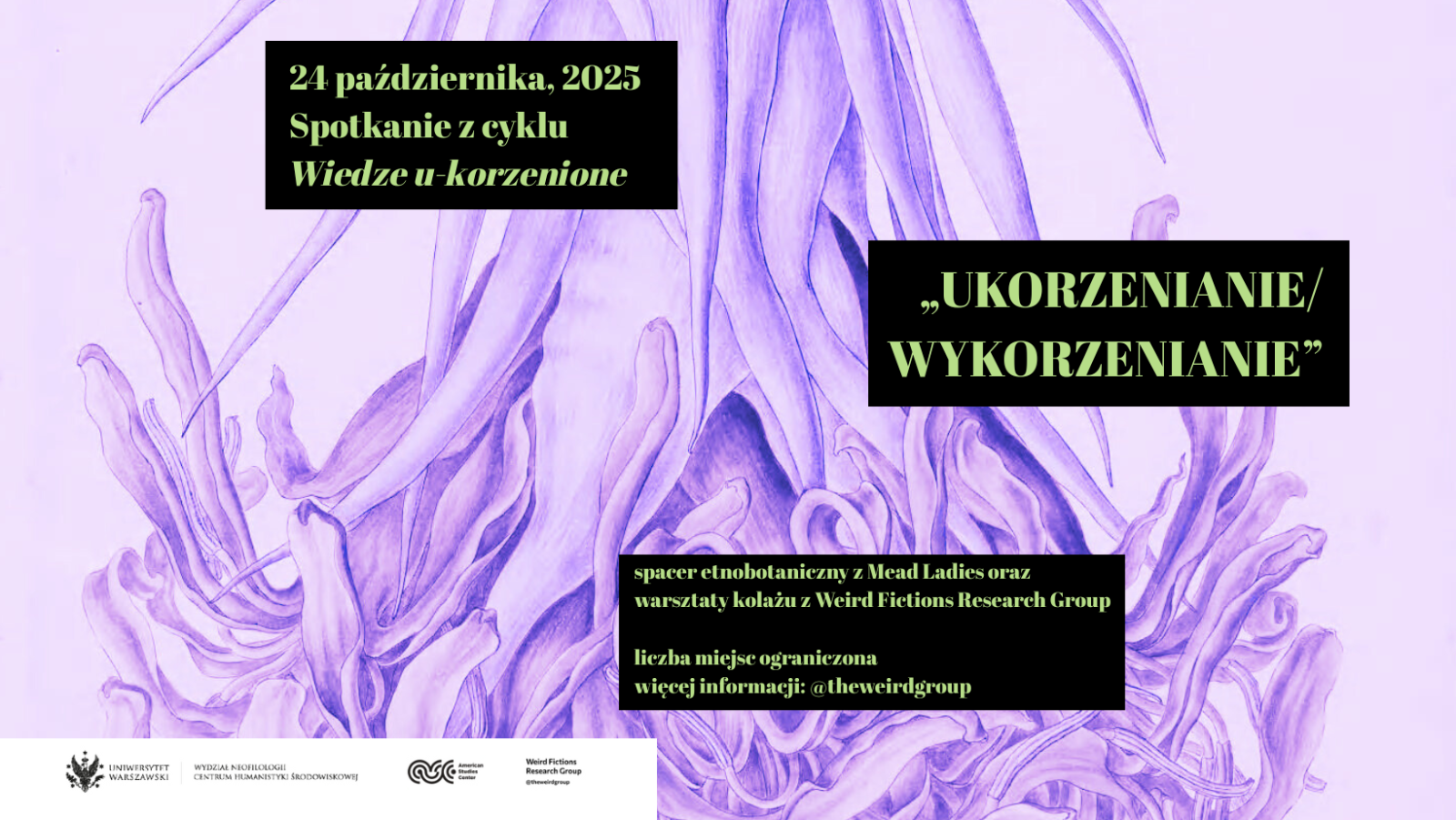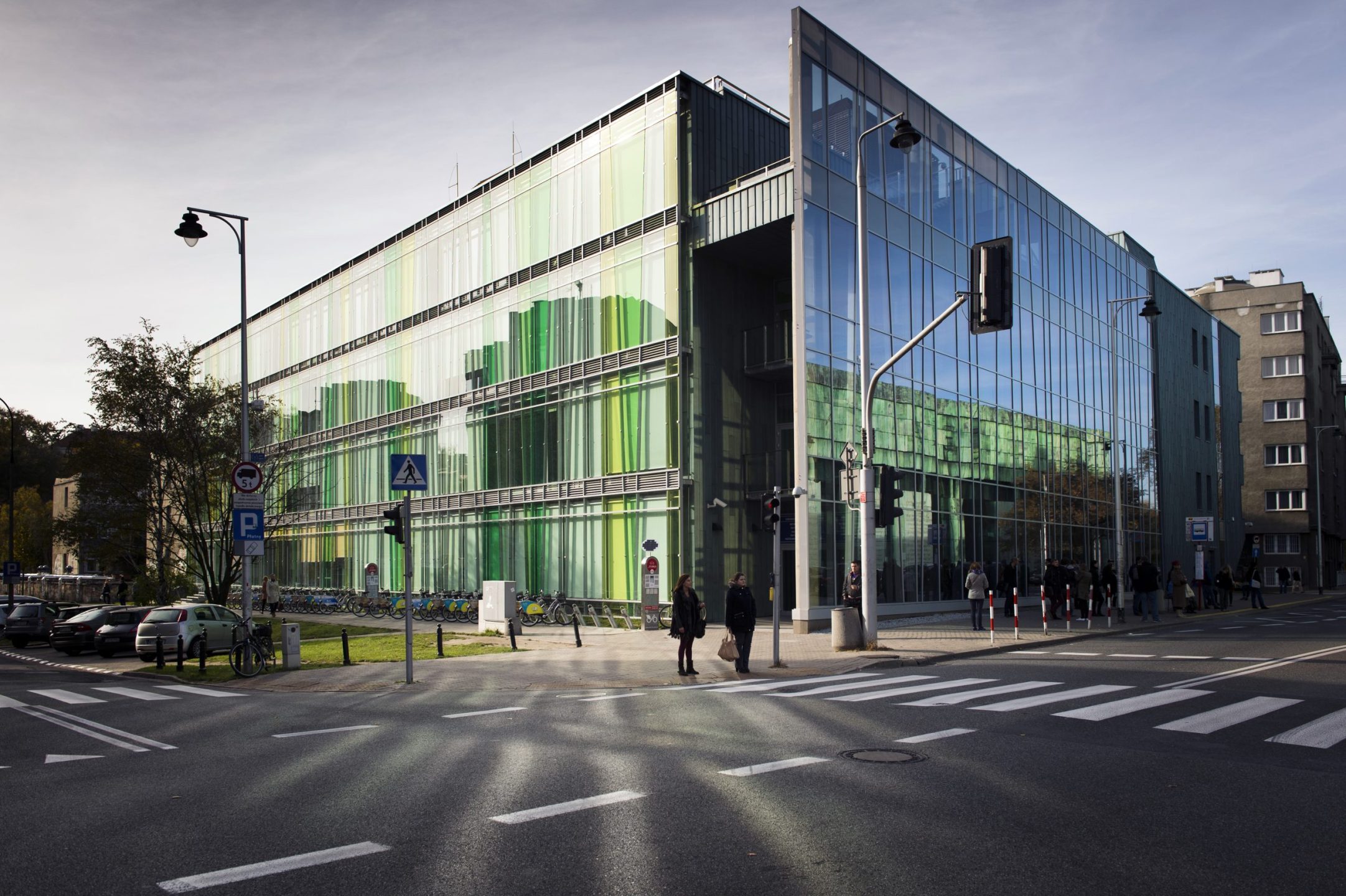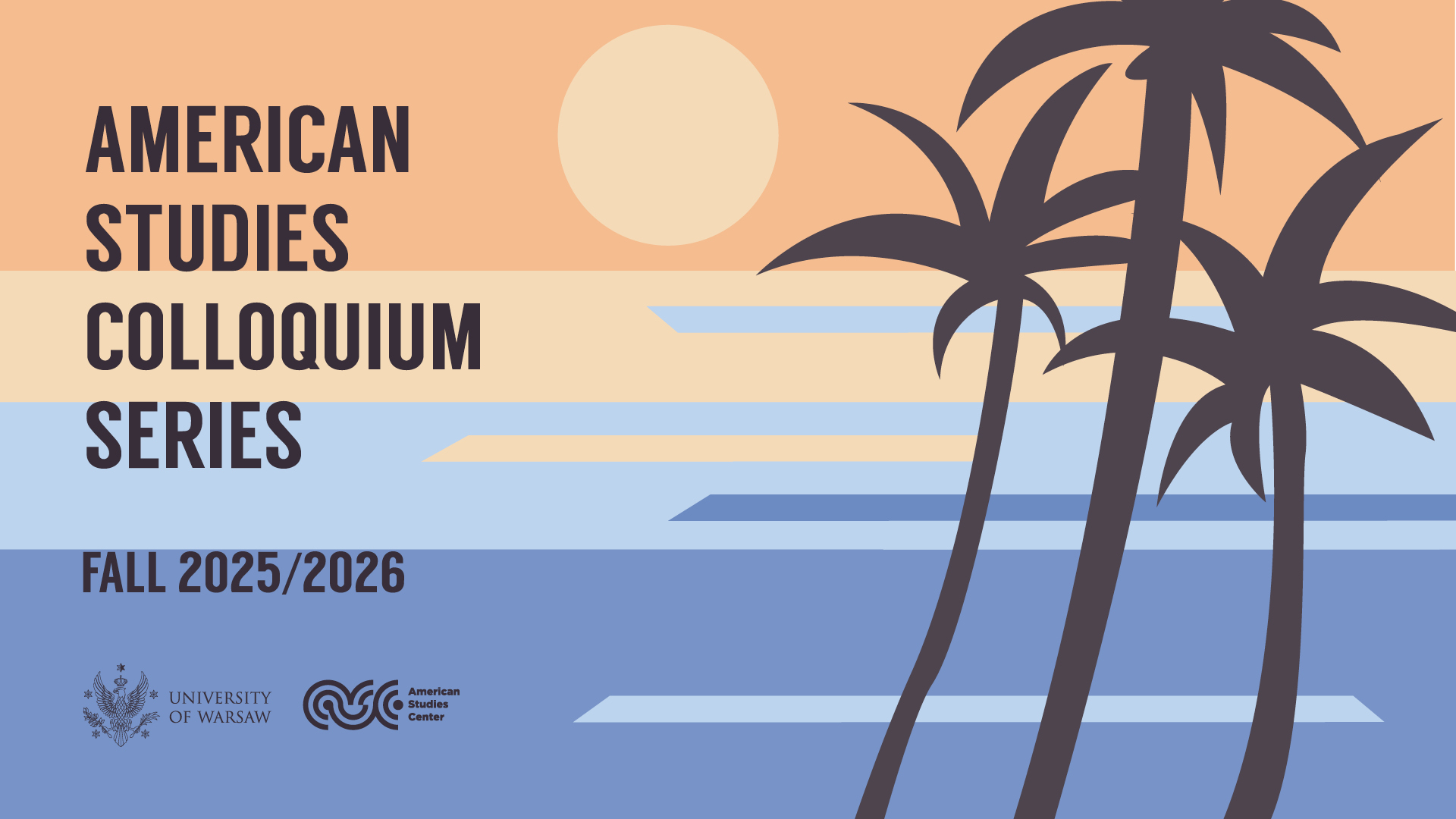We are pleased to invite you to the XXVII Seminar of the Polish-American Ethnological Society devoted to indigenous cultures of both Americas.
The seminar is coorganized by the Polish-American Ethnological Society and the American Studies Center. The language of the seminar is Polish.
Thursday, October 28, 2021
from 10:00 a.m. to 4:00 p.m.
at the American Studies Center, room 317,
al. Niepodległości 22, Warsaw.
During the seminar the ceremony of conveying the book collection of late Andrzej Wala to the ASC Library will take place.
Program
Dr hab. Radosław Palonka, mgr Anna Słupianek, mgr Bolesław Zych, mgr Katarzyna Ciomek, mgr Michał Znamirowski, mgr Magdalena Lewandowska
Laser scanning, excavations, and consultations with contemporary Native Americans: last few seasons of Polish archaeological research on the Ancestral Pueblo culture from the canyons of Colorado
Dr Adam Piekarski
Meriwether Lewis and William Clark. Pioneer ethnographers of the area of the Missouri and the Columbia Rivers
Dr Justyna Otwinowska
Peoples’ will of judging
Mgr Michał Żerkowski
Alfred Irving Hallowell among the Berens River Ojibwe
Mgr Anna Słupianek
The Chaco Phenomenon and its influence on the development of Pueblo culture between 9th and 13thcenturies
Mgr Cezary Cieślak
Intertribal wars – the case of Middle America
Mgr Jolanta Gach
The underappreciated cultural heritage of the Amazonia
Mgr Mirosław Sprenger
„Indians are not white people” – Indian police in the early reservation period
BIOS
Dr hab. Radosław Palonka, prof. UJ
Adiunkt w Instytucie Archeologii Uniwersytetu Jagiellońskiego w Krakowie. Od kilkunastu lat uczestniczy w badaniach kultur indiańskich w różnych częściach Stanów Zjednoczonych; stypendysta m.in. Fundacji Fulbrighta i Fundacji Kościuszkowskiej. Od 2011 roku kieruje projektem archeologicznym w regionie Mesa Verde (Kolorado, USA), badającym przemiany osadnicze, społeczno-kulturowe oraz sztukę naskalną prekolumbijskiej kultury Pueblo oraz innych grup indiańskich z Południowego Zachodu, m.in. Nawaho i Ute. Członek PAES/PATE
Dr Adam Piekarski
Studia (Instytut Ekonomiki i Organizacji Przemysłu, Wydział Ekonomii) na Uniwersytecie Mikołaja Kopernika w Toruniu, gdzie ukończył również etnologię i obronił pracę doktorską (Katedra Etnologii i Antropologii Kulturowej, Wydział Nauk Historycznych). Zajmuje się problematyką Indian amerykańskich, związaną z historią Ameryki Północnej, w szczególności Stanów Zjednoczonych. Specjalizuje się w zakresie kultur tubylczych górnej Missouri. Prowadził w USA badania związanym z tematyką ekspedycji Meriwethera Lewisa i Williama Clarka. Redaktor książek, uczestnik i organizator konferencji naukowych, autor wystaw. Przewodniczący Polskiego Stowarzyszenie Przyjaciół Indian oraz członek The National Museum of American Indian w Washingtonie (DC). Członek PAES/PATE
Dr Justyna Otwinowska
Pracuje w Państwowym Muzeum Etnograficznym w Warszawie. Absolwentka Uniwersytetu Warszawskiego, gdzie prowadzi wykłady z muzealnictwa. Doktorat obroniła w Instytucie Filozofii i Socjologii Polskiej Akademii Nauk. Członek Polskiego Towarzystwa Ludoznawczego i PAES/PATE
Mgr Michał Żerkowski
Etnolog i antropolog kulturowy. Doktorant w Instytucie Etnologii i Antropologii Kulturowej Uniwersytetu Łódzkiego. Zaangażowany w projekty badawcze z obszaru antropologii psychologicznej i kognitywnej oraz etnohistorii. Organizator Polskich Seminariów z Antropologii Psychologicznej w Instytucie Etnologii i Antropologii Kulturowej Uniwersytetu Łódzkiego. Członek Polskiego Towarzystwa Ludoznawczego oraz International Union of Anthropological and Ethnological Sciences
Mgr Anna Słupianek
Doktorantka (Instytut Archeologii, Wydział Historyczny Uniwersytetu Jagiellońskiego w Krakowie). Zajmuje się problematyką wpływów Kanionu Chaco (Nowy Meksyk) na osadnictwo kultury Pueblo w regionie Mesa Verde w okresie od XI-XIII w. n.e. Zainteresowania naukowe związane są z okresem prekolumbijskim na Południowym Zachodzie Ameryki Północnej, ze szczególnym uwzględnieniem zmian kulturowo- społecznych kultury Pueblo. Od kilku lat zaangażowana w Projekt Archeologiczny Sand Canyon – Castle Rock kierowany przez dr hab. Radosława Palonkę, prof. UJ, realizowany w Kolorado, USA.
Mgr Cezary Cieślak
Nauczyciel historii (Szkoła Podstawowa nr 1 w Zalasewie im. Mikołaja Kopernika, Szkoła Podstawowa w Wierzonce). Redaktor magazynów Indigena i Wyspa Żółwia. Uczestnik konferencji naukowych poświęconych tubylcom amerykańskim. Członek PAES/PATE
Mgr Jolanta Gach
Absolwentka Uniwersytetu Jagiellońskiego w Krakowie. Pracuje w Dziale Archeologii Muzeum Śląskiego w Katowicach
Mgr Mirosław Sprenger
Historyk. Studia na Uniwersytecie Kazimierza Wielkiego w Bydgoszczy. Pracownik Instytutu Pamięci Narodowej. Interesuje się polityką władz amerykańskich wobec plemion z Wielkich Równin, w szczególności w stosunku do Szejenów. Publikował w kwartalnikach Tawacin, Indigena i w Biuletynie PSPI. Uczestnik konferencji naukowych poświęconych tubylcom amerykańskim. Konsultant merytoryczny wydawnictw o Indianach. Członek PAES/PATE



